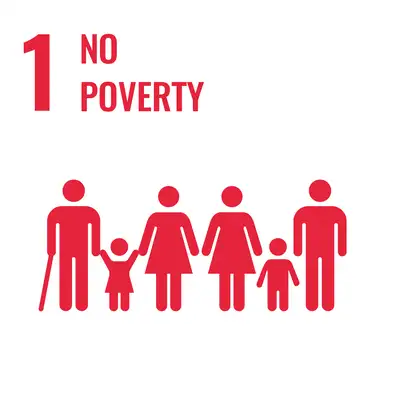On this page
- Scholarships
- International collaborations
- Nutritional education to help communities in need
- COVID-19 hardship grants
- Just Zilch Rescue Food Charity
- International Development Studies Network
- Exposure of Rental Housing Standards failure
- Decades of Insight: Home and Rental Affordability Reports
- Annual Retirement Expenditure Guidelines
- Community Accounting Services
- Exploring NZ’s welfare system through theatre
- Related content

Scholarships
A wide range of scholarships are awarded to Massey University students each year, providing financial support for students whilst they study. In 2023, over 1,600 scholarships were granted, up from 1,200 in 2022. These include contestable scholarships, awards, grants and bursaries, and are based on factors including academic merit, specific skills, financial need or a combination of these.
A key factor in the increase of scholarships in 2023 was the introduction of the Undergraduate Excellence Scholarships, which saw more than 150 scholarships awarded based on academic performance.
Scholarship distribution:
- Gender: Around seven out of every ten scholarships are awarded to female students
- 70 per cent of scholarships in 2023
- 72 per cent of scholarships in 2022
- Māori students: 17 per cent of scholarships were awarded to Māori students, on average, in 2022 and 2023
- Pacific Peoples students: 14 per cent of scholarships were awarded to Pacific Peoples students, on average, in 2022 and 2023
These scholarships provide valuable financial support, helping students succeed in their academic journey at Massey University.
Scholars Massey programme:
Massey University offers the Scholars Massey programme, a unique peer support initiative for students who are planning to apply for a scholarship or have already been awarded one. This programme provides guidance, community, and resources to help students make the most of their scholarship experience.
Find out more about the scholarship that Massey offers
Get tips and strategies for applying for scholarships
Find out more about the Scholars Massey programme
International collaborations
More than half, 55 per cent of Massey University’s 99 SDG1 No Poverty publications between 2019 and 2023 resulted from international collaborations (Scopus database extracted using SciVal in October 2024). The most popular topics that this research has focused on include sustainable livelihoods, poverty alleviation and decent work.
Notably, the number of publications per year has shown a consistent upward trend in recent years, increasing from 12 in 2020 to 21 in 2021, 19 in 2022, and reaching 27 in 2023.
Nutritional education to help communities in need
Since 2017, Massey University has organised a series of training programmes in South Auckland’s low socioeconomic schools which teach young adults about nutrition, cooking and healthy eating within a budget. Through the Nestlé Cook for Life programme, our dietetics students are improving the lives of young people in vulnerable communities through the delivery of these educational programmes.
COVID-19 hardship grants
During the COVID-19 pandemic, Massey University offered Emergency Hardship and Emergency Technology grants to ensure that students facing financial hardship could continue their studies. The university provided over $1.2 million worth of support.
Just Zilch Rescue Food Charity
In 2022, Massey staff and students harvested more than three tonnes of apples and pears and half a tonne of kiwifruit from the Massey orchards. The fruit went to Palmerston North rescue food charity Just Zilch to distribute through its free store.
Wharerata, the staff cafeteria on the Manawatū campus, and the Manawatū dining halls both give leftover daily production to Just Zilch.
International Development Studies Network
Massey chairs the Aotearoa NZ International Development Studies Network – an interface amongst people and organisations proactively working together on ending poverty. Members include aid and development NGOs, private sector development practitioners and the government (especially New Zealand Ministry of Foreign Affairs and Trade).
In 2023, Massey University’s Professor Regina Scheyvens marked chairing the Aotearoa NZ International Development Studies Network for a quarter of a century. Under her leadership, the network has been at the forefront of efforts to address global poverty, actively contributing to initiatives aimed at sustainable development and social justice.
Scholarships for financial mentors
In June 2023, the Ministry of Social Development (MSD) has partnered with Massey to offer scholarships for financial mentors to enrol in a microcredit course. This initiative is designed to empower individuals by shifting the focus from crisis and debt management to promoting long-term financial well-being.
Read more about the scholarships
Exposure of Rental Housing Standards failure
In 2022 three Massey journalism students were honoured with the Bruce Jesson Emerging Journalism Award for their investigation that exposed the failure of New Zealand’s regulation of new laws on healthy home standards for rental housing.
Decades of Insight: Home and Rental Affordability Reports
Massey’s Real Estate Analysis Unit has produced quarterly reports on home and rental affordability for almost a quarter of a century.
Annual Retirement Expenditure Guidelines
Massey’s Financial Education and Research Centre’s annual New Zealand Retirement Expenditure Guidelines continued to provide up-to-date information on saving requirements for “no frills” and “choices” retirement.
Financial Education and Research Centre
Community Accounting Services
Massey University’s Community Accounting Services provides free financial advice for non-profit community groups. There are also free, regular clinics for treasurers and board members of small to medium-sized community groups, including charities and service organisations.
Exploring NZ’s welfare system through theatre
The play “Un-Welfare State” critically examined the welfare system in Aotearoa New Zealand. Written and co-directed by a Massey academic, the production provided frontline insights and encouraged audiences to reflect on the system's effectiveness.








